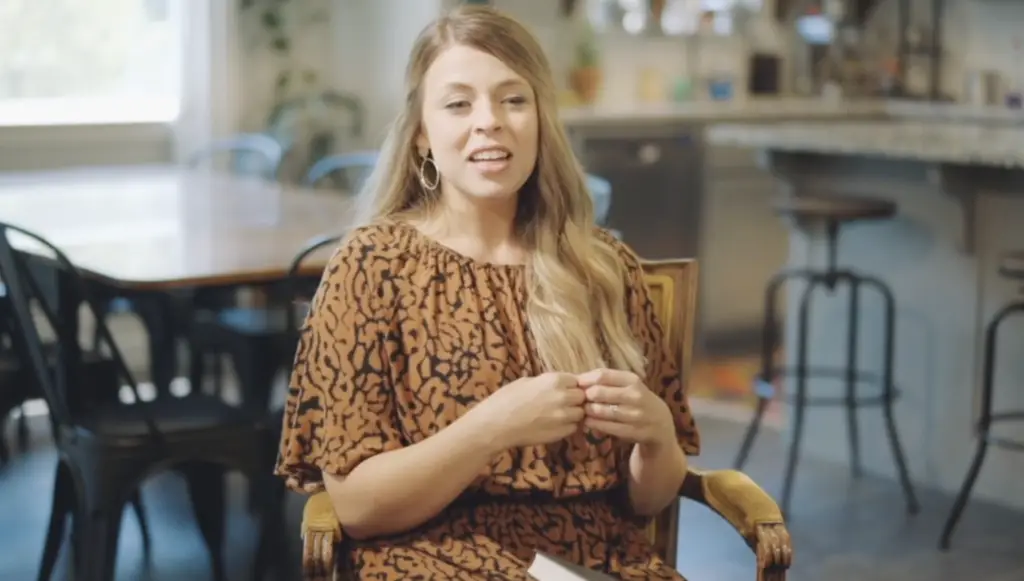Editor’s Note: May is Mental Health Awareness Month.
OKLAHOMA CITY (BP) – When Julie Busler returned to America with her family after serving with the International Mission Board, everything seemed great from the outside. No one would have guessed she had returned due to a mental health crisis.
Busler and her family were serving overseas with the IMB when her struggles with depression, anxiety and trauma reached a boiling point. Busler said the true struggle came because no one knew she was in fact struggling.
“I looked happy on the outside, but on the inside, I felt like I was dying slowly and there was so much darkness in my life, and I didn’t realize these negative intrusive thoughts I was having were actually not OK,” Busler said.
Looking back, Busler realizes her time serving in Turkey was when her coping skills simply ran out.
Her mother’s death from cancer followed by her father’s suicide caused Busler to wrestle with trauma, depression and other mental health issues since early adulthood. She struggled to know how a Christian should handle mental illness.
“I think for me I was confused even as a mature believer if it was a faith problem or if it was really just an illness,” said Busler, who is now president of the Woman’s Missionary Union of Oklahoma. “I didn’t know where I stood on that point of view and so because I didn’t know I was paralyzed and then didn’t reach out to get help because I wasn’t sure what I even needed.
“I felt like I have a lot of faith. I’ve followed Jesus overseas with my family and I love Him. So why am I still struggling? I think it’s a big question about whether it’s just an illness or just a faith problem or if it can be both.”
Busler’s illness escalated to the point where she was experiencing not just intrusive thoughts, but a thought-out plan to take her own life.
After sharing this with her husband, they made the decision to visit a Turkish hospital to see a psychiatrist. Busler’s time in the hospital was difficult. She was isolated and not allowed visitors, a phone or even a Bible, even though she asked for one many times.
Her condition did not improve during her hospitalization, so the Busler family decided to leave Turkey and return to the United States.
After struggling to the point of attempting to take her own life, Busler returned to the hospital, this time in Oklahoma. It was there she would begin to slowly make progress through a combination of counseling, support from friends and family, medication and spiritual transformation.
Even though she had already been serving with the IMB for years, Busler said she almost had to relearn the fundamentals of Christianity after going through such a difficult season. Humility and rejecting the lie of perfection were some of the steps she said helped push her in the right direction.
“At first it was hard for me to come to terms with little baby steps because I thought ‘I’m really mature in my faith, and I can share the Gospel, I read the Bible and all these things but I wasn’t putting it into practice, so I almost had to go back to the basics and just learn how to walk with Jesus every moment,” she said.
“I was learning to embrace my weakness and realizing it’s OK if my prayer today is ‘Jesus help me’ and not some theologically deep speech. It came down to just learning and embracing my weakness. We are all broken people who need Jesus. Perfection is actually unattainable. People are instead actually drawn to someone who is struggling but who walks in victory. I think there is a beauty when we admit our struggles, and being real is how God’s glory shines through our weakness.”
Busler also stressed the importance of discovering a nuanced Christian worldview on mental health.
“Mental illness itself is not a sin,” she said. “I could not help the trauma that happened to me, but I could control if I would respond to the temptation to sin based on my mental illness. I was dealing with both mental illness and certain sins in my life that required repentance.”
Busler said although she is incredibly thankful for gifts from God such as therapists and medication, those things are not her ultimate hope in life.
Despite things like medication helping to get her head above water, Busler made clear it was only through inward spiritual transformation that true freedom and life are found.
“Once I started reading the Bible faithfully every day, my mind started changing,” she said. “It’s not that the depression or the mental illness went away, but my ability to thrive in it and to find joy in the sorrow is there now. Before this, I didn’t know that joy and sorrow could really coexist. And now I know that is normal because of our fallen bodies and that I may always struggle with these thoughts or with depression, but God really is my strength, and I know how to rely on Him now.”
Now in her role with Oklahoma WMU, Busler said she has felt a burden in recent months to start sharing her story. She hopes sharing her story can help minister to those struggling with mental health.
“It is OK to get help. There is hope and help available,” Busler said. “There’s so much hope for the church, and I think people are ready to talk about mental health topics.”
A full video detailing Julie’s story can be viewed at her website, and you can connect with her on social media on Instagram @juliebusler and on Facebook at Julie Busler/Author.
This was written by Timothy Cockes and was originally published at baptistpress.com

